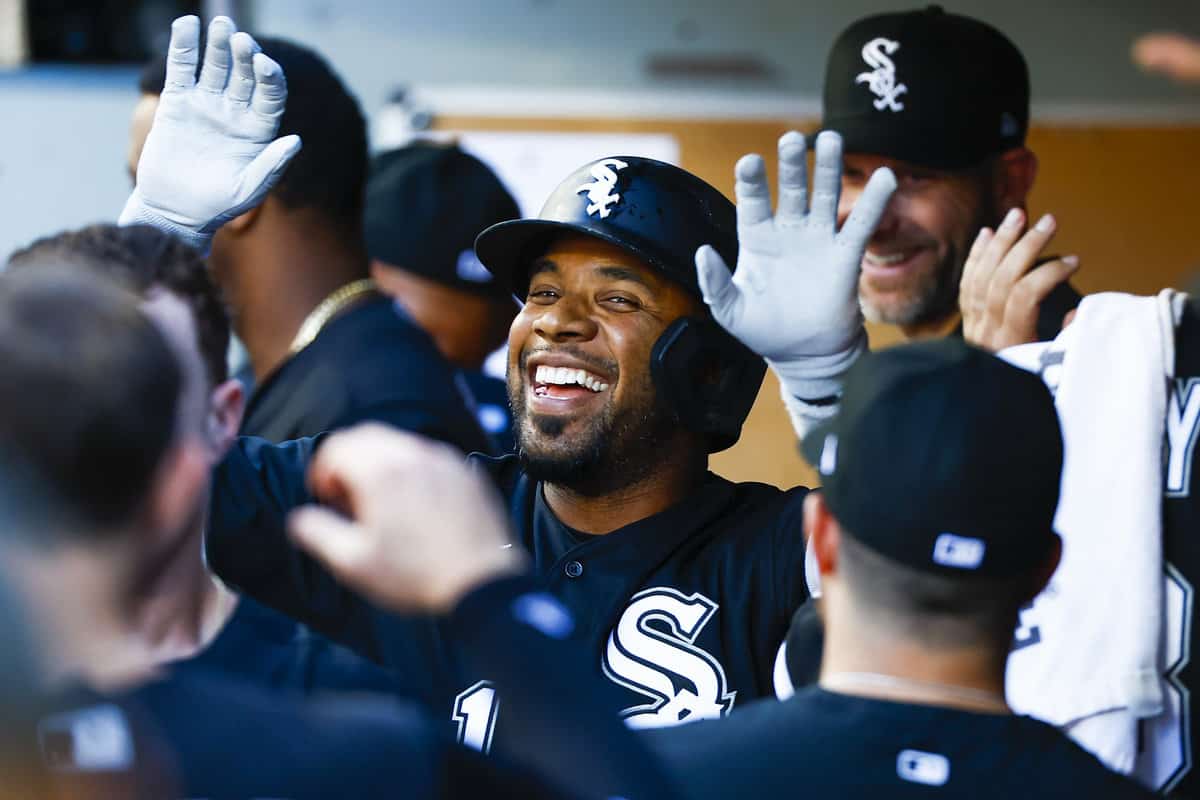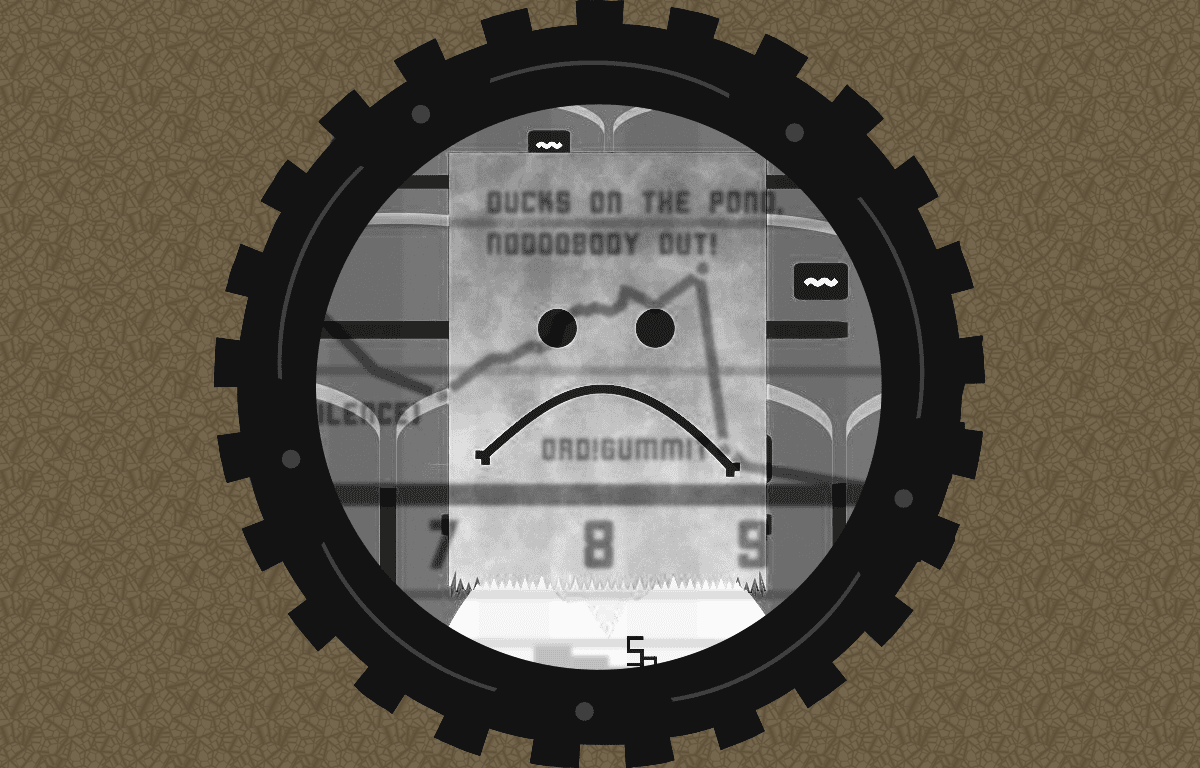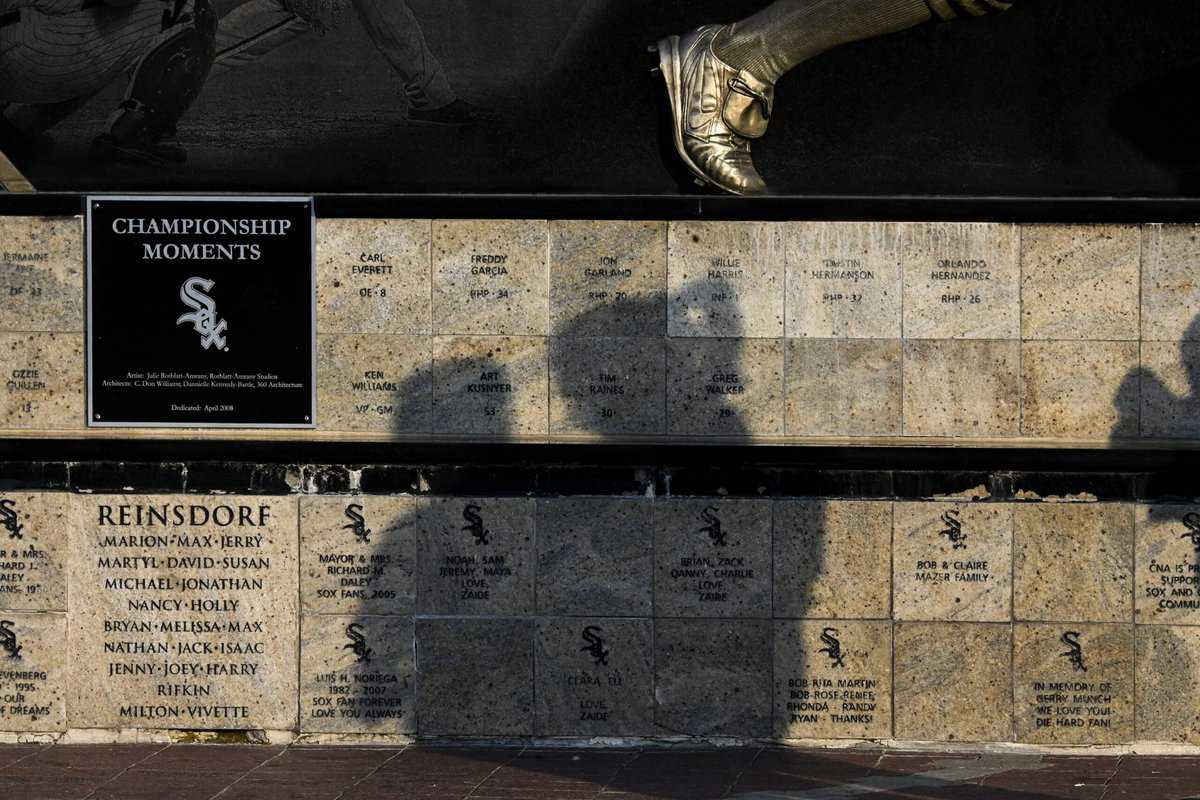With one out during the second inning of the White Sox's rough-and-tumble victory over the Mariners on Wednesday, Michael Kopech threw six straight out of the zone.
That's usually the time for a mound visit, but the White Sox didn't use one of their five, because Elvis Andrus made sure to interpret it too literally to trigger the sensors.
Andrus visited the mound, but only the mound. Kopech stepped off the rubber as though Andrus had something to say, but Andrus kept his head down and gave the rosin bag the most cursory of flips before retreating to his position.

Kopech recovered from the 2-0 count to strike out Adam Frazier, and then he struck out Taylor Trammell to escape the inning without further incident.
Fast-forward to the sixth, when Seby Zavala opened the inning with a smash that leaked through the defense of Eugenio Suarez at third. Andrus followed by working Suarez as though he and Zavala were playing a doubles-against-single tennis match. After Zavala made Suarez retreat behind the baseline, Andrus made Suarez charge the net. Suarez couldn't get there in time to do anything about it.
On the Seattle broadcast, Andrus earned a Hawk Superlative from Mariners play-by-play guy Dave Sims:
"Andrus and Erick Aybar: Two of the best bunters we've seen against the Mariners over the last 10 to 15 years."
These were minor moments in successful innings, the kind that might go unnoticed if two different White Sox did them, or even one who has been around the whole time. Because Andrus is new, and because he's been playing as the best possible version of himself since arriving from Oakland, everybody is more attuned to what he is and isn't doing.
Gordon Beckham described these actions as those of a "winning player," and that certainly looks the case when the White Sox are winning, whether we're watching a game like Wednesday's or a week like this last one. It's also a little too simplistic of a label considering the White Sox went 2-10 in Andrus' first dozen starts, and with Tony La Russa and Miguel Cairo, he's played for seven managers over the last five years.
Lest this sound like nitpicking under a wet blanket, allow me to clear the air:
No. 1: Beckham has improved with reps in the analyst chair, and while he still needs to become more comfortable with silence, he's appropriately locked in on the action relative to the stakes of the game.
No. 2: It's not great for the Sox if Andrus deserves so much credit.
This team is the defending AL Central champ, and the Sox were expected to repeat in a walk. They had a Hall of Fame Baseball Person managing the team. Veterans comprise two-thirds of the lineup, and three-fifths of the rotation. They should not need a 12th seasoned player to come over after being honorably discharged from the American League's worst team and show them how to win.
The White Sox have been in rough-enough shape that they've needed multiple players' meetings to try to get to the heart of what's hampering them, but Kopech cited all the other veterans who are supposed to be at the center of maintaining standards, not the guy who just got here.
“There’s some strong leadership presence in this locker room,” Michael Kopech said. “There’s a few guys to credit that to. You can say Lance (Lynn), you can say Johnny (Cueto), Polly (AJ Pollock), (Josh) Harrison. A handful of guys with 10-plus years now and they’ve really taken the charge as far as what we need to accomplish as far as the team goes, as far as being supportive to our staff.”
This isn't to shortchange Andrus, or turn the discussion into a saber-1.0 argument of numbers against intangibles. Instead, I think it speaks to how profoundly flawed the White Sox were/are that a humble addition like Andrus can reveal so much. He brings three things to the table that few others can:
- He can handle a premium position.
- He understands the speed of the game.
- He's healthy.
If winning teams need to be strong up the middle, the White Sox have spent the year hollowed out. Yasmani Grandal has played the season without legs, Luis Robert is swinging with one hand, and Tim Anderson has dealt with issues with both halves of his body. Throw in season-long struggles for Leury García and Adam Engel, and way too much responsibility falls to first basemen who are masquerading as corner outfielders.
You can see how he'd be such a revelation before even getting to the leadership stuff. He's hitting .284/.321/.459 and he knows where he and everybody else on the field is supposed to be.
This season has been so joyless because questions about health have permeated everything. When I was hunting down the evolution of Lance Lynn's curveball the other day, I realized that most of my research has pertained to trying to figure out when a player got hurt, and what that injury has done to him.
Most of the team's issues can be boiled down to "Is [player] physically able to complete the tasks at hand?", and a staggering number of them have not been able to answer that in the affirmative. Andrus might be the rare player who can help others simply because he isn't overwhelmed with helping himself.
We've seen flashes of that elsewhere as of late: Lynn regaining a whole arsenal; Eloy Jiménez coming up with three hits, including a seismic homer; Leury García coming off the bench and stealing a base. We also saw a handful of mistakes in the field that tethers any anticipated improvement to the team's suffocating .500-ness.
It shouldn't take a player like Andrus, who only became available after the trade deadline because a tanking team stopped trying even further, to provide the Sox what they've been missing all along. The fact that the White Sox were even able to get a player like him was enough of a miracle for one season.
Maybe Andrus' specific attributes fit the White Sox's problems so neatly that his impact is outsized, or maybe we're just catching this story at a specific moment. Ideally, improvements elsewhere would relegate Andrus to a complementary role, where praise of his his intangibles would be charming and quaint rather than alarmingly necessary. The pessimistic view has Andrus regressing to his mean just like everybody else, and the White Sox's older, bigger problems return to the fore.
With only 25 games remaining, these unknowns will become known in relatively short order. However they're answered, the Andrus Boost should give everybody who talks and thinks about the White Sox a better idea of what they'd look like with a normal amount of health or injury-management skills, and players playing where they're supposed to play. Andrus can only help with those things until the season ends. After that, the front office is on its own.






